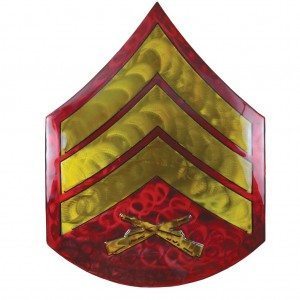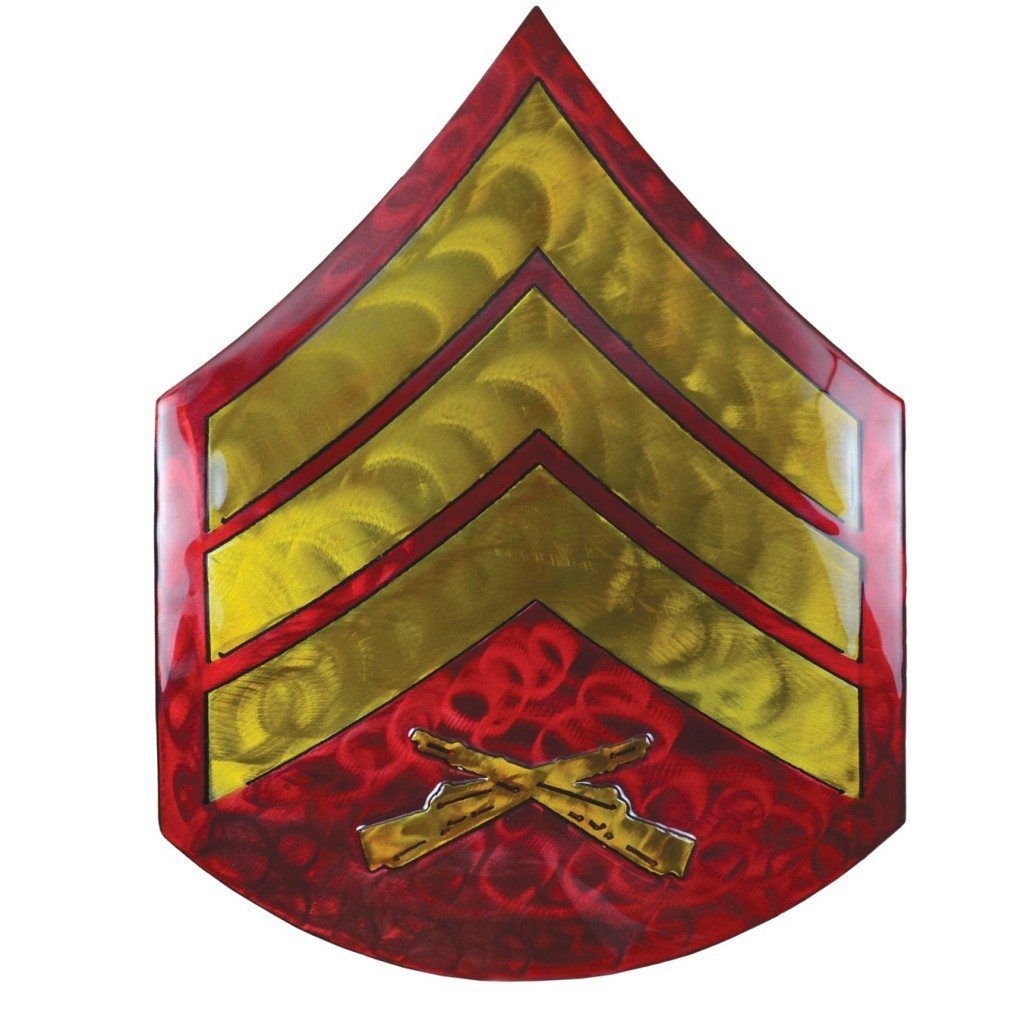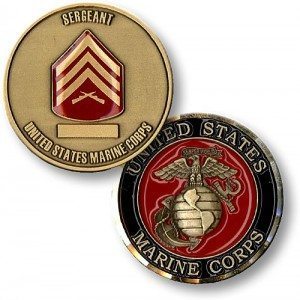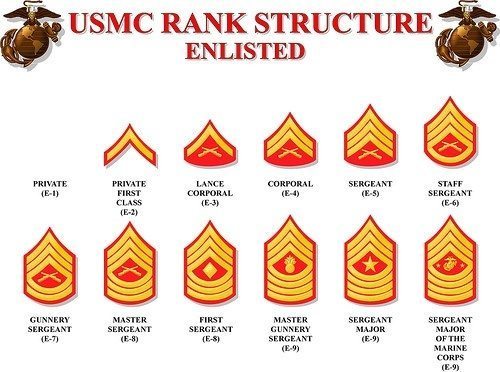
Perhaps the inherent ability to get the job done set at the heart of those who did it. And the Non Commissioned Officers (NCO’s) were typically the backbone of getting it done. The dual nature of the NCO, especially at the junior level such as Corporal or Seargent to Staff Seargent, is that they still have to do the work, but they also have to show others how to do the work, lead others in places where doing that work seems impossible, and beyond that – maintain the highest standards of integrity which even a lot of higher-ranking enlisted and officers forget, after they switch more than one office.
What seems to have come to pass, is that today’s NCO often thinks of themselves as an elite and elitist member of the enlisted team, yet somehow excluded from the realities of the suck or the day to day grind.
I will never forget this moment. We were on a (technically) humanitarian mission. My team leader was a former Marine from 2nd Division, and an E6 in our current service. We were at a hasty chow hall, when I watched him stand off to the side and observe the food line as people got theirs, and moved on.
As my turn in the line came and I neared his position, I offered for him to go ahead in front of me, seeing how he’s been standing there for 10 minutes, and we all had limited time before getting back to work. He said “No! My people eat first. When all of you guys get your food, then I can eat.” To me, this has always been the NCO standard. You take care of your people, you lead by example, and you filter the crap that rolls downhill from the upper echelons of command.
That has also been the only way which has worked for me. Imagine my astonishment, when on another mission with several Marines, a Lance Corporal told me something like “if a Sergeant is here, there’s no way I can keep this seat… A Sergeant or a Gunny, I’d definitely be walking or something.” What did I miss? I know training and the NCO expectations have evolved over the years, but how is it that a grunt pounding sand all day is expected to walk, while a higher ranking ensiled who stayed back in the A/C, still stays there? Maybe both the training and expectations have softened across the military spectrum.
We forgot, as a country and as a military, how to make sure that we all stand for the same thing. Same thing we believe in, and probably same thing that drew most of us to the service in the first place. We’re afraid to offend, to yell, to do more PT, to spend money when we need to and on things which will save our troops’ lives… Perhaps at some point the focus shifted from the down and dirty battlefield priorities to managing, writing performance reviews, and learning theories of communication – instead of just talking to your team mates. And team mates is who they are. They’re not your subordinates, your lackeys or just some “f*&king privates” or “airmen.”
Their rights of passage don’t lie with you being a d*&k. Because you told them to do something or just treat them like they are meaningless in scope of the mission. If that’s your working theory, it is your right to pass the stripes on to someone else who will do the job better. And there are plenty waiting. Don’t forget that not only will most of them someday have your rank, some will outrank you. And right now they’re probably saying “when I’m in his shoes, I will…”
Most importantly, don’t you ever forget that when s&*t hits the fan, or whatever version of your profession that may denote, you will be working with your teammates side by side, and they will be doing most of the work. How you act now, will determine your overall success as much as anything else. To my surprise, the same Marines told me that until you get to a rank of Corporal, “they don’t really give a sh*&t about you.” They were referring to recruiting and retention, and guess what the prevailing decision among these Marines was? I’m not reenlisting.
While some of this is definitely a cultural approach to The Few and The Proud, the rest of it is utter non-sense. To discourage people who have put in hard work, proven themselves and could be passionate about who they are and what they do, the approach is to cut them down and get a new bunch. Not only that, most of the guys are a step from starting their NCO careers. If that is in fact the prevailing attitude, and not just the heat and frustration getting to me when that conversation took place, then we will be left with a bunch of egotistical asses who fail to do the very thing their NCO oath requires of them.
The current standards of Non-Commissioned Officers developed over hundreds of years, and were bourne out of countless battles. The theories and practical applications progressed from Greek and Roman armies, to conquests of Napoleon, American Civil War and modern conflicts of World Wars, Korea, Vietnam and the War on Terror. From writings and guidance of Rudyard Kipling and General-Baron Friedrich Wilhelm von Steuben and his famous Blue Book. Followed by edits of William Duane and his Handbook for Infantry, to more current approaches accredited to General Winfield Scott and William Hardee, the purpose of NCO developed from a static supervisor who gave commands to fire the guns in a stationary line, to a functional leader who physically led his troops into combat and was the first to draw blood. The definitive modern day leadership reference from my standpoint, is MSG Paul Howe and his book Leadership and Training for the Fight: a Few Thoughts on Leadership and Training from a Former Special Operations Soldier. It’s worth re-reading several times in your career.
The days of gentlemen-like and aristocratic approach to NCO functions are long gone. With the evolution of modern warfare, its asymmetrical 4th and 5th generation nature, we cannot afford a talking-only NCO tasked with leadership, who knows nothing of field craft. At this point in the game and at that level, there can be almost no managing – but should be all leading. The later can be applied to any branch of service, and almost regardless of specialties. Yet, the following excerpt is from a definition of leadership I came across recently: “…the art of influencing and directing people… with the ability to inspire confidence and support from the people who are needed to achieve organizational goals… creating an environment where people want to do the job.” I agree those are all important elements, but is that really what we want to project to a junior NCO, who excitedly enters a new realm of responsibilities? Is there no more a direct, no-nonsense way to describe it?
George Patton, a great leader and a visionary in his own right, had some great quotes. Among them, was “Don’t tell people how to do things, tell them what to do and let them surprise you with their results.” No amount of school will prepare a troop to be a good leader or an effective NCO, if the heart and inherent abilities to be one are not present. There is a lot to be said for the few good ones we all had. It makes them stand out that much more, and be that much more motivating, effective and often almost awe-inspiring. When, as a grown man you can look at another man, perhaps your peer or your colleague, and say to yourself “I need to do this with myself to be better… “That’s what an NCO should drive others to feel like. While those skills can certainly be enhanced in a classroom or field training environment, the truth is that either people wholeheartedly bring themselves into those responsibilities or they get pushed aside by their own troops who are forced to take over the lead.
The modern NCO, in both definition and function, has evolved to be an effective team leader. An educator and a student, a motivator and a good follower, working to benefit their team. They have and must, always be a part of that team. Any perception or practice to the contrary will jeopardize the mission, and lives. They must be able to lead into dynamic and fluid environments, where critical thinking and success go hand in hand, and static textbook guidance take a back seat to heart and soul of the person privileged enough to be assigned a leadership position.
“Wars may be fought with weapons, but they are won by men. It is the spirit of men who follow and of the man who leads that gains the victory.” – George S Patton Jr.



